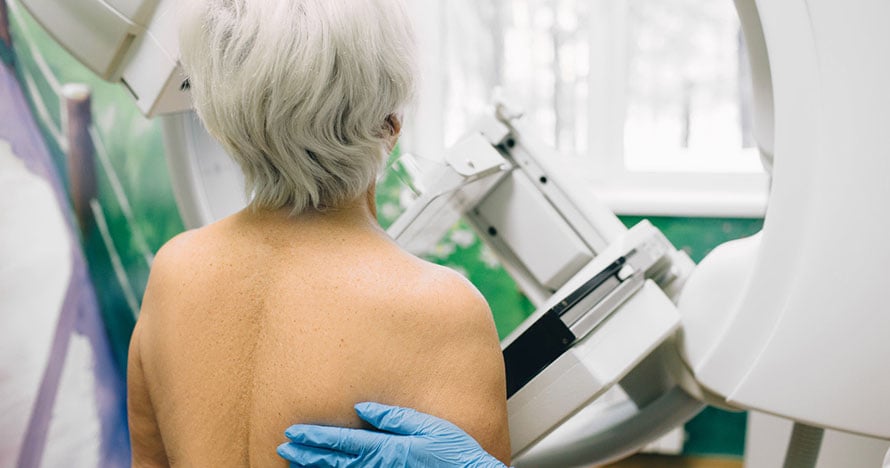Breast Cancer in Older Adults
Cancer risk is known to increase with age. According to the National Cancer Institute, women 70 and older have a one in 24 chance of developing breast cancer at some point in their lives. Currently, the average age at diagnosis is 62, and almost 20% of those diagnosed are 75 or older.
Recent studies suggest that the biology of breast cancer is not much different in pre- and post-menopausal women. But most of the invasive tumors detected in older adults are hormone-receptor positive, which tend to be slow-growing and have a good overall prognosis. Many women who have lived to an advanced age do well when treated for breast cancer. Even so, older adults can experience cancer much differently than younger people.

More research is needed to improve care and outcomes
For older adults, the path to early detection and effective treatment for breast cancer is not always clear. There are still few evidence-based guidelines on how to best screen and treat this growing population. One reason is that the elderly are often excluded from clinical trials—which form the basis for the standard of care—due to their age or health. As such, there is no hard-and-fast schedule for screening or protocol for treating women 75 and older. To improve outcomes as people continue to live longer, more research is needed.
What’s more, many older adults do not receive appropriate treatment for breast cancer because they are not properly assessed. As noted above, one key issue is the lack of standardized procedures supported by data. Another is that patients are often assessed based on their chronological age instead of their functional age. This is problematic because a patient’s chronological age can differ markedly from their functional age, and the latter can significantly influence the effects of breast cancer treatment.
Finally, a physician faces unique challenges when treating an older adult with chemotherapy. They must provide the standard of care at the recommended dose while closely monitoring the patient for side effects and finetuning the dose as needed. This is a delicate balancing act. Older adults with breast cancer are at greater risk for treatment-related side effects, but undertreatment at any age can lead to a poor outcome.
How Moffitt Cancer Center approaches breast cancer in older adults
Moffitt is a National Cancer Institute-designated Comprehensive Cancer Center, a designation that recognizes our groundbreaking clinical trials and ongoing contributions to cancer prevention and control. As a trailblazer in cancer research, we are leading the charge in improving breast cancer outcomes and quality of life for the elderly. Our Senior Adult Oncology Program is specifically designed to meet the unique needs of patients 70 and older, and patients of all ages have access to the latest screening, diagnostic, treatment and supportive care services through our renowned Don & Erika Wallace Comprehensive Breast Program.
If you would like to learn more about the specialized offerings available to older adults through our Senior Adult Oncology Program, you can talk with a breast cancer specialist at Moffitt with or without a referral. Request an appointment by calling 1-888-663-3488 or submitting a new patient registration form online. At Moffitt, you are a top priority of a cancer center that delivers nationally ranked care in new and transformative ways.
